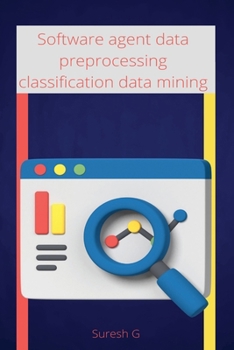Software agent data preprocessing classification data mining
Data preprocessing is a crucial step in the realm of software agents and classification data mining, playing a pivotal role in enhancing the accuracy and efficiency of the subsequent analysis. This multifaceted process involves the transformation and manipulation of raw data into a format suitable for classification algorithms, ensuring that the extracted patterns and insights are meaningful and reliable. The initial phase encompasses data cleaning, where missing values, outliers, and inconsistencies are addressed, preventing these anomalies from influencing the classification results. Subsequently, data integration combines disparate sources, providing a comprehensive dataset for analysis. The normalization or scaling phase standardizes numerical features, eliminating potential biases introduced by varying scales. Feature selection then optimizes the dataset by identifying and retaining the most relevant attributes, reducing computational complexity and enhancing model interpretability. Textual and categorical data are often transformed through techniques like tokenization and one-hot encoding to facilitate the application of classification algorithms. Dimensionality reduction methods, such as principal component analysis (PCA), may be employed to further streamline the dataset. Additionally, addressing issues of class imbalance ensures that the classifier is not skewed towards the majority class, fostering a more accurate representation of the underlying patterns. Through these meticulous preprocessing steps, software agents are equipped with a refined dataset that sets the stage for effective classification in data mining, allowing for the extraction of meaningful patterns and insights from complex and diverse datasets.





